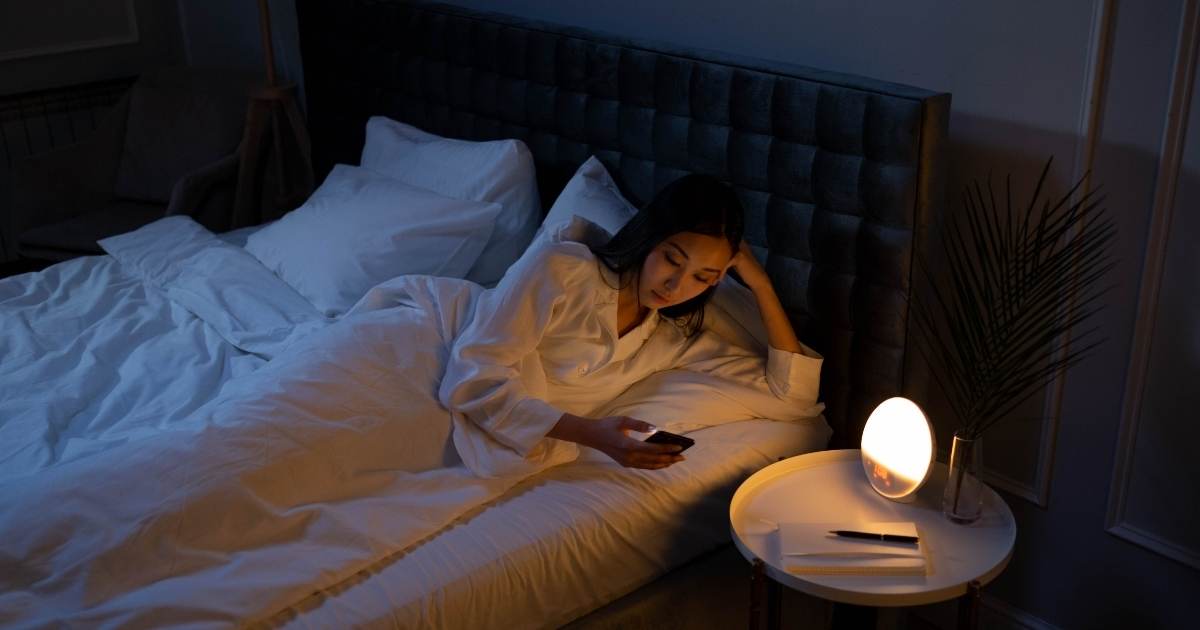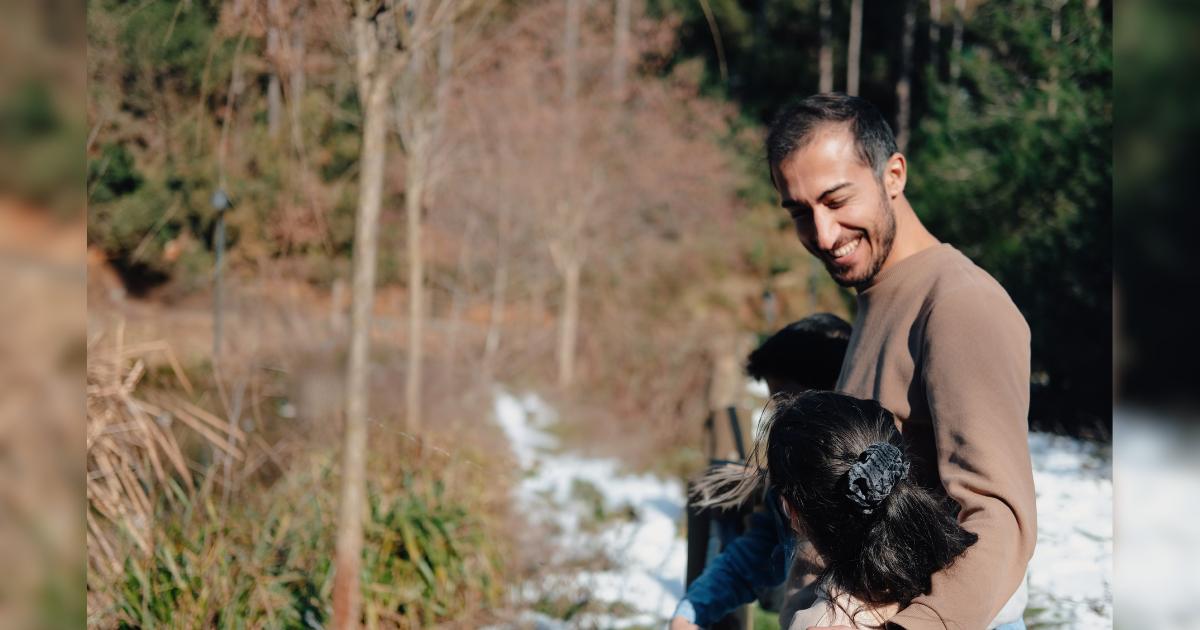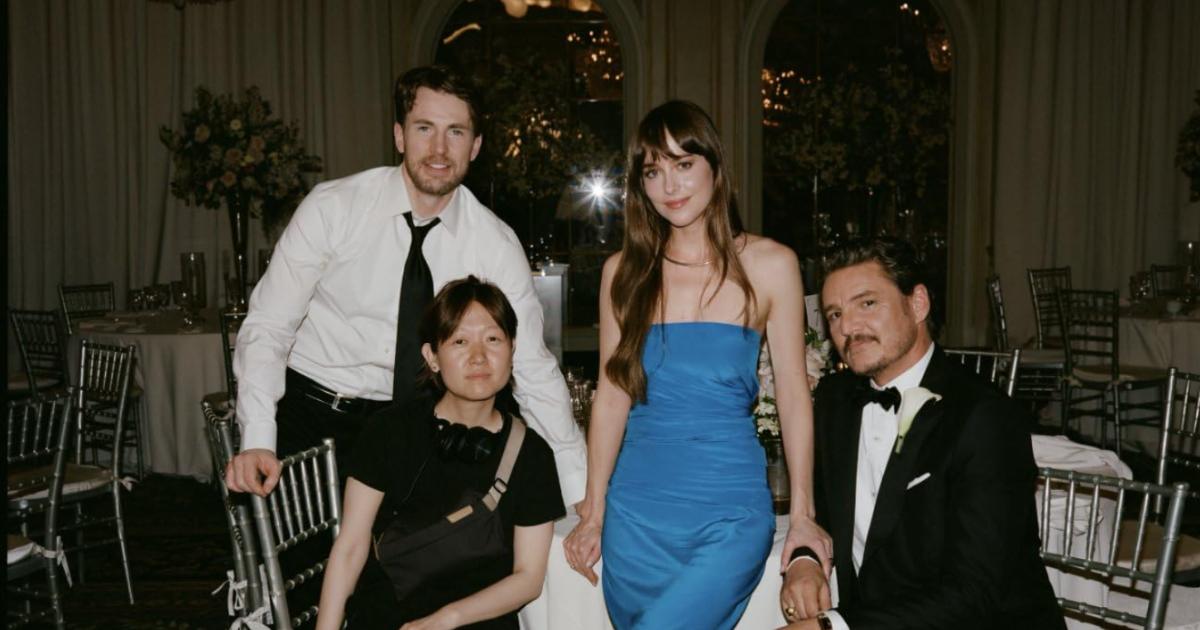Is My Boyfriend Embarrassed of Me?
Video Summary
What does it mean if your significant other is focusing the camera on everything but you? Join Master Certified Matchmaker Genevieve Gresset and Certified Dating Coach/Matchmaker Heather Drury as they dissect this older woman’s worry about her BF’s avoidance of taking her picture and the need for some self-realization. Does she have a legitimate problem to bring up, or could she be overanalyzing the situation to rationalize her insecurities about the relationship?
Video Transcript
Heather: Hello and welcome back. Hi, Genevieve. How are you?
Genevieve: I’m good. How are you?
Heather: I am awesome. I’ve got a lovely letter from somebody that says: “Not sure how to feel about this” as their subject line. So I’m hoping we can give them some really good, solid help to make them know how to feel about this.
Genevieve: Well, let’s see what we can do.
Heather: Let’s get started. I love it. Okay, so this person says, “I went on a mini vacation with my boyfriend. We are both in our fifties and we do not live together. Been together on and off for around five years. In the beginning of the relationship, he did not take any pictures with me and the first time he ever posted a picture with me on social media was just a few years after we got together and I felt like I was forcing him to do something that he did not want to do. Moving forward, he stopped posting all together on social media, but he does like to take pics. I noticed when he got when we got dressed up and went out for the holidays, he even took some selfies on this mini vacation. Since I’m always the one saying ‘Let’s take pictures together.’ I did not say anything waiting to see if he would take any himself. He took no pictures of us at all, though he did take pictures and videos of sights and nature and even the sexy dancers at the show. I’m not sure if I’m overreacting to this, but it made me feel really bad. Why would he not want to have any memories of our trip together? Of the two of us? I did see that he liked to take a lot of pics with his ex to the point where they had pictures from a professional photographer. Could it be that he does not find me as attractive? I know that I am just too old for this. And more and more I feel like I would just be better off single and not have to worry about things like this all together.” Oh, wow.
Heather: I know that’s a tough one, but also a simple one. I don’t know if you feel that way. This radiated some attachment work, this radiated communication style. This radiated just a few simple measures that she could do, in my opinion, to just simply ask some questions.
Genevieve: Well, I was going to say, you know, the anxiety that was radiating off this letter was even making my blood stop boiling a little bit, thinking I just want her sat in front of me to say: “Breathe, just breathe,” because not everybody is living their life through social media as as potentially this guy. Maybe he had problems in his last relationship. He felt that with his previous partner everything was on social media, and maybe he doesn’t feel a need. Maybe he’s more secure and more confident about this relationship to not keep doing that and showing the world and telling everybody.
Heather: “Keeping up with the Joneses,” if you will.
Genevieve: I think her anxiety perhaps comes from her feeling not so great about herself, and I think that’s something she needs to work on. If she feels more secure about herself, she would be asking him these questions. Right? She just saying, “Hey, you used to post all the time with your ex and just want to know where we stand with posting. How do you want this to move forward? Is it something you’re comfortable doing or is it something that was her thing, not your thing, and you just played along with it.” Ask the questions. But I wouldn’t necessarily show the vulnerability saying something like: “Am I not attractive? Do you not find me attractive enough to take pictures of us to put on social media?” That’s something you need to work on privately rather than openly exposing that to your partner. I think that’s something you need to demystify and work out yourself. So yeah, I’m still processing this one. It’s really sad that she feels this way.
Heather: Absolutely. At the start and at the end [of the letter], on and off for five years and we don’t live together. Nobody is saying that you have to live together to be in a healthy relationship. But the on and off for five years point. There’s already some instability there that we really need to know at this point. What are we doing here?
Genevieve: It’s going to raise insecurities in itself. The “on-off” is going to feed the anxiety and create more and more anxiety. She’s probably just waiting for it to be off again.
Heather: So we’re kind of expecting that’s our pattern. That’s what we do. So that’s what I should expect. And then the last part where she says, “I feel like I’d rather be alone.” Here’s the thing. When we do that to ourselves, that means that we’re avoiding the heavy stuff. No, you would not rather be alone. We are human beings that are programed to be connective, to belong with one another, to feel a sense of love and appreciation and affirmations and all of these wonderful things. I think the only thing that we can strongly suggest here is there needs to be a really beautiful open dialog, not in just one part, but in maybe multiple parts about what you need in your relationship and what he needs. You two need to explore that because it feels, just with this one small incident of photos and “He’s taking pictures of the sexy dancers, but he’s not taking photos of me.” I just feel so yucky when I can imagine feeling that and it not feeling very good. Then if you don’t address it, it just festers and grows.
Genevieve: Oh, it’s like feeding the beast.
Heather: It just gets bigger and hairier.
Genevieve: I think there’s a couple of things that this lady needs to address. The first one is what is their relationship and what does the relationship mean to her as well as him? Is this a relationship that’s healthy that they both want, that they’re both invested and committed to? If it is, what does that actually look like now? What does this relationship look like if it’s on or off? Sometimes that can create, as we’ve spoken about, it can create the insecurities, create the problems. So I really like her as a number one plan, is to establish where are they in this relationship. That’s the first thing, and that might give us some confidence to say, “You know what? Yeah, maybe it is time for it to be over. Maybe it is time for me to move on, but not necessarily be lonely and on my own and single,” and all that drama that was being talked about. But actually, “Maybe I need to move on to someone who is going to be committed and connected and wanting to be on the same journey as me,” and the second thing is for her to look at the anxiety and where it’s really stemming from.
Heather: Absolutely.
Genevieve: Is it coming from this relationship? Is this a pattern that’s been with her in every relationship she’s been in or in other areas of her life? Is this something that she needs help with? The third thing is understanding the relationship that they both have with social media. Does she need him to be posting pictures of her for her to feel valid in this relationship? Is that what she needs for validation of her relationship with this guy? I think she needs to look at what her relationship is with with them together, her relationship with herself and her relationship with social media and the validation around social media. So those are the three areas, I think, from my experience, that I would encourage her to take a look at.
Heather: I think it’s interesting, you’ve pointed out every single one of those kind of doesn’t include him. It’s all self-exploration and and identifying who you are. I think you’re right. When we put so much emphasis on things that are maybe not the most important indicators of healthy connections. I think we have to realize, “Okay, why is this bothering me? Why am I looking at another relationship of his? I’ve been with him on and off for five years. That means that that relationship was probably a decade ago. He’s a completely different person. His needs are different. Why am I freaking out?” Take a breath and do some of that inner work to identify what you need to feel secure in yourself and in your relationship. The one thing that I love realizing ,and working with clients as long as I have, the big fat V word “Vulnerability” is really scary, even in relationships with our partners.
Genevieve: Really powerful, it is the most powerful thing that we can do. If we’re vulnerable with ourselves, if we are vulnerable with our partner in an authentic way, not in a “I’m just going to have a complete breakdown” way.
Heather: Right, Right.
Genevieve: You know, there’s a difference.
Heather: There’s a difference between vulnerability and freaking out.
Genevieve: Vulnerability and neurosis are two different things. So we need to make sure that what we’re doing what we’re supposed to be doing and having put thought into it and having worked out our feelings before we have conversations. Once the analysis has taken place, she might realize she’s the one that’s got to do some work. If she then sees that actually there are some things that she’s uncomfortable with, write them down and then have a conversation with them. But when you write them down, it gives you the clarity. I’m a big one for writing things down and lists and everything else, but when you write it down, you’re actually getting clarity and you’re reading it back and saying, “Oh, actually this sounds ridiculous. Now I’ve got it here in black and white. What am I worried about?” How many times you’ve written things down and then thought: “And the problem is what?”
Heather: Yeah, “what’s going on here, really?” The thing that I love about men in my experience and in my relationships and in my life, when we are able to come to that solution and have an epiphany within our own self and we’re able to simplify our needs. You sit down on the couch, you sit across from the man that you love and you lean in and you say, “I love you, I need this from you. How can we make it happen?” A lot of times, if we give people the boundaries we need, they’re like, “Oh, I didn’t know that about you. I would love to explore this with you. What do you think?” Instead of “This is what you’re NOT doing,” it’s “Can we work on that together?” Give this person the chance to understand you a little bit, because they might not even know what’s going on. They might not even be aware of what your needs are.
Genevieve: And I guarantee you, he probably has not a clue that you’ll feeling like this.
Heather: Right.
Genevieve: About this situation. And I love the way that you portrayed that conversation in such an emotional way. It was lovely. Don’t put the blame on anybody, not even on yourself or him. Take blame out of this conversation. I think that’s one of the things that as women we don’t do particularly well, and then we wonder why men don’t react and respond particularly well. So if you can learn the art of communication to get to the solution that you’re wanting to find, life’s a lot easier. Heather, I love your little idea of having this conversation on the sofa all snuggly.
Heather: After 20 years of marriage, man, I’ve learned that one is the best way that I can really nurture. I literally have seen a physical response in my relationship when instead of saying you don’t understand and this is difficult and it’s hard for me, and he’s like, I don’t understand. Like, what are you talking about? When I reframe it, work on it, think about it and and then I go to him and I just kind of communicate in a very loving, compassionate, kind of flirty way, too, because I love flirting with my husband 20 years later. I still love him so, so much. It allows that opportunity for connection and–
Genevieve: And vulnerability.
Heather: And vulnerability. The thing that I think we’re so afraid of because I do understand the other side of it, if I’m vulnerable and I do this and I get shut down, that’s going to suck. How do I repair from that?
Genevieve: But you know where you stand then!
Heather; Yes, good outcome either way.
Genevieve: It’s a win win. Also, even if they do respond badly, you can be even more vulnerable and say, “I wasn’t expecting this response. I was hoping we could sit down and find a way forward positively together.”
Heather: Yeah, I love that. You keep consistent with that messaging and that part of yourself, which also offers a gift to the other person to say, “You’re not freaking out? I don’t need to be defensive. You’re cool with this. Okay, let me try.” We need one person to show up first so the other one can follow suit. That’s the nature of the game in relationships, marriage, etc. I’m hopeful here. I’m really hopeful that maybe the pictures thing that she might be identifying as something that is a negative, it might actually be a cool response where he says, “Look, my other partner needed that to feel special. I just love being with you, and I take pictures to remind me of us, too.” You might be surprised if you give him the opportunity. Your vulnerability might enlist some vulnerability with him too. So give it a shot. Don’t be a turtle and go into hiding and go into your shell. Let’s lean into vulnerability. Lean in to connection. You’re worth it. It’s so important.









